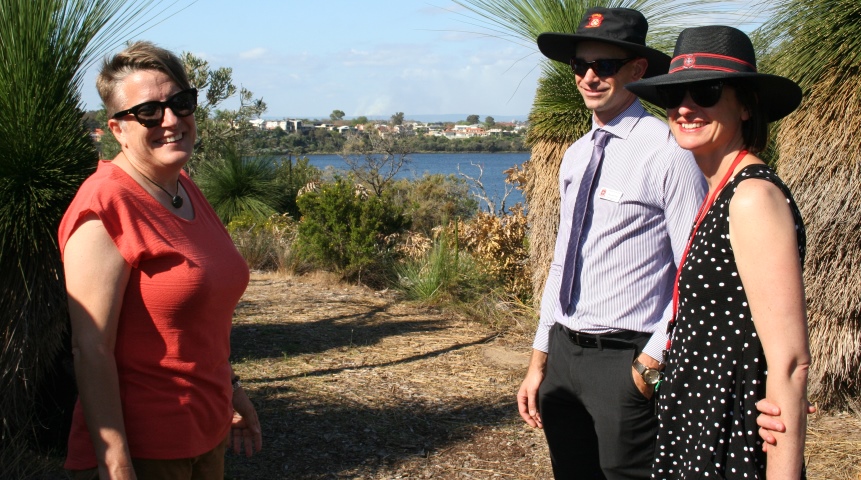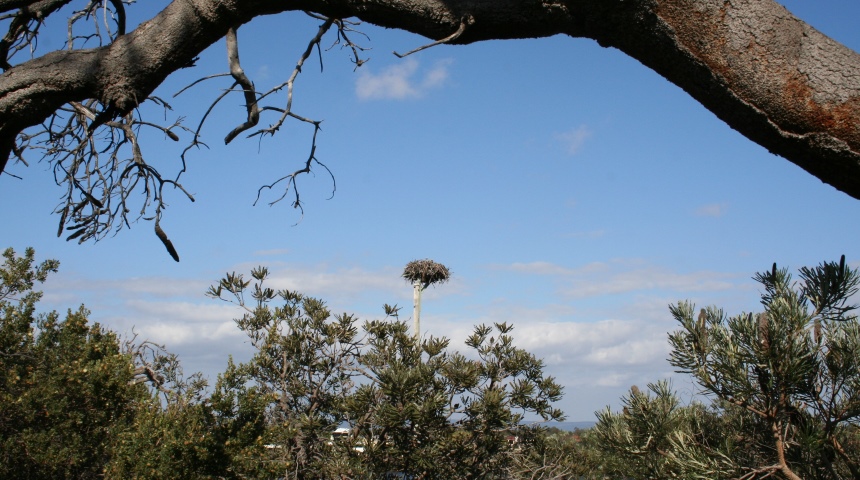
The Harry Butler Institute at Murdoch University is poised to carry on the legacy of world-renowned conservationist, Dr Harry Butler, with the introduction of an environmental science education program within Perth schools this semester.
Commencing with a partnership with Aquinas College, the Harry Butler Institute’s resident experts and researchers will develop students’ interest in biological and environmental sciences; and the importance of biosecurity and conservation of Australia’s native flora and fauna.
Harry Butler Institute Director Professor Simon McKirdy said the environmental education program was an important step in future-proofing Australia’s ecology.
“Dr Harry Butler was a pioneer who engineered a means for business and biodiversity to co-exist through effective biosecurity and environmental management,” Professor McKirdy said.
“He saw the importance of educating the younger generation of Australians to see the value of conserving and protecting our native flora and fauna, which he did through his ‘In the Wild’ TV series.
“The Harry Butler Institute aims to carry on his vision to shape the next generation of leaders in conservation and environmental management, through developing programs that bring communities, education institutions and industry together to work together towards this shared cause.”

The 40 hectares of remnant banksia woodlands and riverbank located on Aquinas College school grounds at Salter Point is home to a range of native plants, birds reptiles and plants. This includes a family of nesting osprey (next pictured); occasional flocks of rainbow bee-eaters - and like Murdoch University’s own bush campus – has its own population of resident quenda.
“This presents a vast array of opportunities for the Harry Butler Institute and Aquinas College students to team up to study, and collect and analyse data on the plants and animals for research projects,” Professor McKirdy said.
The area has also been impacted by urbanisation, with evidence of visitation by cats and dogs, and the presence of some invasive weed species, highlighting opportunities for Chevron Harry Butler Chair of Biosecurity and Environmental Science, Professor Marnie Campbell to teach students about the impact of biosecurity threats and ecosystem restoration.
Aquinas College Dean of Development Mr Peter Robertson said the school was looking forward to incorporating the ecology of the riverbank and bushland into its science curriculum.
“At the moment, the land is regularly enjoyed and used by the students for cross-country sports, however would really like to use what we have on our doorstep to engage the students in active science, taking them out of the classroom to learn more about the biological and ecological importance of the area,” Mr Robertson said.
“We also have a lot of students from rural areas with an interest in agriculture, so it would be wonderful to be able to teach them about the agricultural sciences, which they will then be able to apply to their future careers.”
Professor McKirdy said that the institute hoped to inspire the students to not only consider pursuing a higher education in the biological sciences field, but to become the environmental stewards of the future.
Following on from the success of the pilot environmental science program with Aquinas College, the Harry Butler Institute plans to promote and develop environmental science projects with other schools, particularly in Perth’s Southern Corridor.